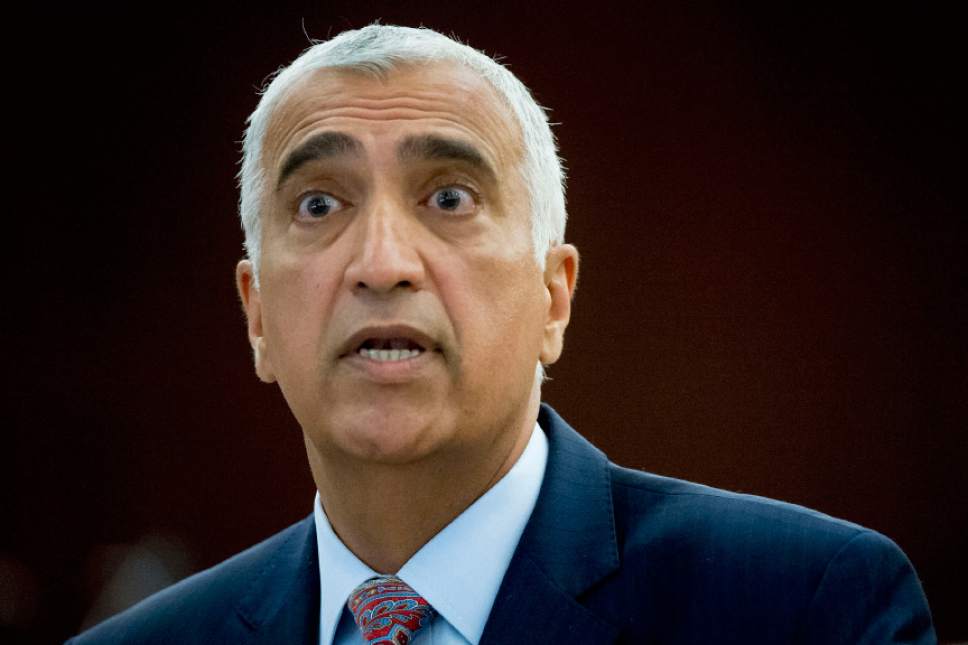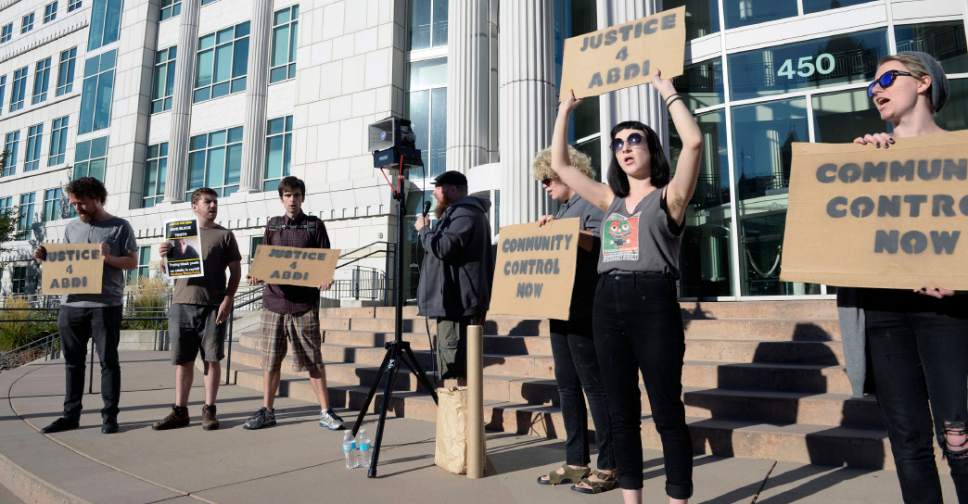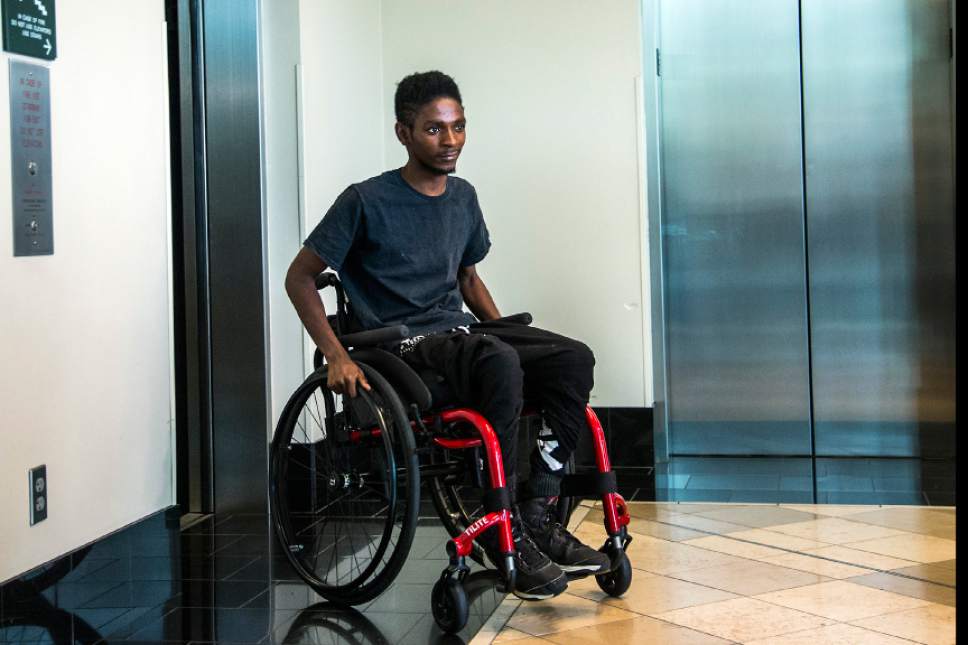This is an archived article that was published on sltrib.com in 2016, and information in the article may be outdated. It is provided only for personal research purposes and may not be reprinted.
After being denied by a Salt Lake County board, the ACLU of Utah this week filed another appeal requesting the release of body cam footage from the February police shooting that critically injured Abdullahi "Abdi" Mohamed, then 17.
This time, the American Civil Liberties Union of Utah is asking the Utah Records Committee to make public the body camera footage from the two officers who shot Mohamed four times. The group is also seeking surveillance video and at least 11 crime scene photos that have been classified as "protected" by the county.
Salt Lake City Officers Kory Checketts and Jordan Winegar shot Mohamed, a Somali refugee, near a downtown homeless shelter Feb. 27. Court records say Mohamed was assaulting a man with a broomstick when the two officers came upon the fight and fired their weapons. The teen survived after going into a medically induced coma and spending weeks in the hospital.
Salt Lake County District Attorney Sim Gill cleared the officers in the shooting and charged Mohamed in juvenile court with felony charges of aggravated robbery and drug possession with the intent to distribute.
Last month, attorneys for the ACLU asked the Salt Lake County Government Records Access and Management (GRAMA) Appeals Board to order that the footage be released because there was no legal justification to keep the video private.
In a "very close call," the county board denied the appeal, saying that Mohamed's rights to a fair trial outweigh the public's interest.
In the appeal to the state records committee, David Reymann, a media attorney who has assisted the ACLU with the case, wrote that it's "pure speculation" to believe that Mohamed would not have a fair trial if the footage was released.
"No one knows when such a trial may occur, if it occurs at all," Reymann wrote. "Most prosecutions are resolved by a plea."
Reymann also argued that the content of the video is not a secret — both Gill and the Salt Lake City Police Civilian Review Board have detailed its contents in reports and public statements.
While Gill found the officers were justified in using deadly force, the review board found that they were "not within" policy.
If the video does exonerate the officers, Reymann said, its release would increase trust in law enforcement and validate Gill's decision. If it varies from Gill's account or doesn't support his decisions, its release is critical to ensuring prosecutor accountability, he argued.
"At a time when police shootings of young black men have reached near epidemic proportions, the public's need to ensure accountability by law enforcement is at its apex," Reymann wrote. "That role cannot be fulfilled if the public is simply asked to trust law enforcement based on secret records that only police and prosecutors are allowed to see."
Gill has refused to release the body cam footage, saying in August that it is part of the criminal prosecution against Mohamed. He said last month that he was "very pleased" with the county board's decision, saying that the board "recognizes the nuanced complexity of this issue."
A hearing date before the state records committee has not yet been scheduled. If the state committee also denies the ACLU's appeal, the group has the option of filing the appeal in district court.
Mohamed's criminal case is set for a preliminary hearing Jan. 23 in 3rd District Juvenile Court. If the case stays in juvenile court, Mohamed could be incarcerated until he is 21 years old. If the case is moved to adult court, a conviction on the robbery count could lead to a prison sentence for up to life.







